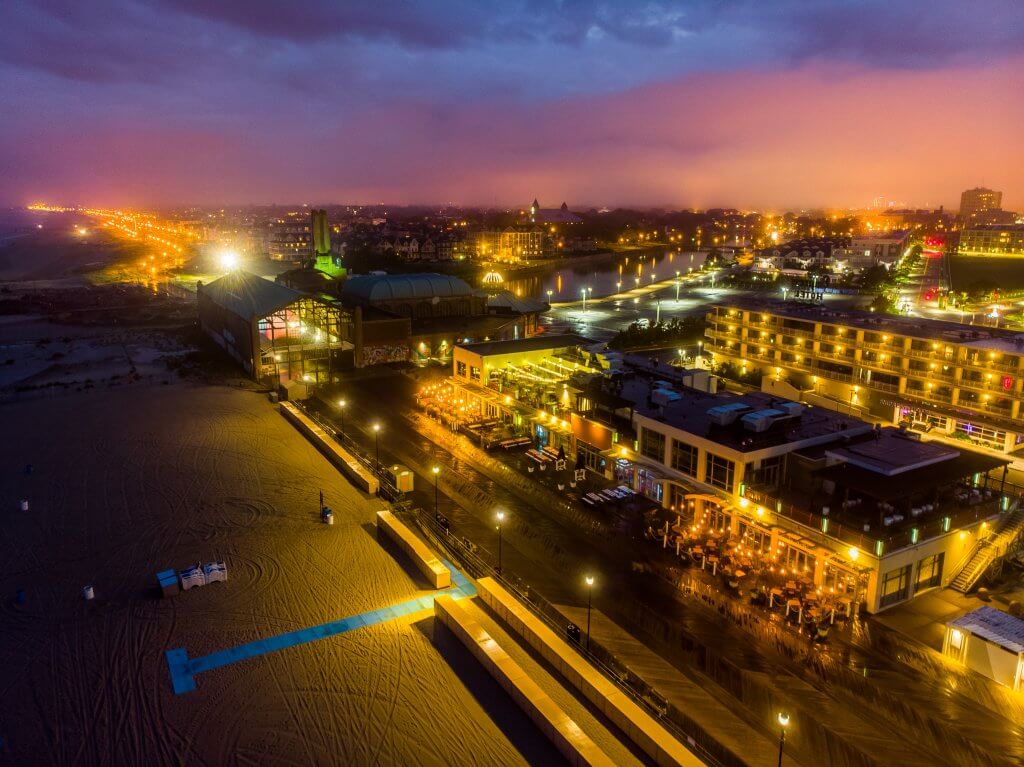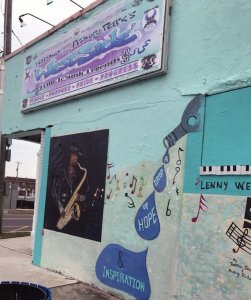
To a tourist visiting the Asbury Park beachfront, it really could seem like a paradise. The boutique hotels and luxury high-rises blended among century-old Beaux Arts buildings and legendary music halls. The energy of diverse crowds splashing in the waves and mingling along the restaurant-lined boardwalk.
And therein lies the paradox. With the passing of each day and ribbon-cutting for every redevelopment project, Asbury Park’s history with racial discrimination and civil unrest fades further from collective memory and becomes harder to believe for the unacquainted.
A team of Monmouth University researchers is working to preserve that history through the “Paradoxical Paradise” project, led by Associate Professor of African American History Hettie V. Williams of the Department of History and Anthropology. The group has assembled a growing online library of archival documents and photos, newly compiled GIS maps, oral histories, podcasts and other multimedia, all of which are publicly accessible at paradoxicalparadise.com.

Williams said New Jersey is “the Georgia of the North” in terms of the depth of its history with civil rights issues and observed that Asbury Park offers a unique case study within the state due to past segregation at its beaches and tourist businesses. Although some attention has been given to racial issues through the lens of Asbury Park’s music culture, Williams said little research has sought a broader understanding of the community.
“It hasn’t been studied by a lot of scholars,” Williams said. “The riots haven’t even been studied a great deal, and they were one of the largest in the state, if not the country.”
The website contains several news articles and photos from the time of the city’s 1970 riots, but some of the most unique insights come from the personal records of Joseph F. Mattice, the mayor of that era. With the support of a UCI grant, Williams was able to access archival documents, letters, photos and other resources related to the riots from Mattice’s collection and has been working with students to add excerpts online. The original materials are housed at Duke University.
“They bought them on eBay for about $450,” Williams recalled. “When I learned that I said to myself, those archives should be at Monmouth.”
Williams encourages any community members with historic documents that can add to the project to contact the team. Materials can be stored on campus or scanned and returned to their owners.
COVID-19 Impacts
The chief focus of the work funded by the UCI grant was the pandemic’s impacts on the city’s African American community. Elements of that work include:
- Specialist Professor of Public History Melissa Ziobro led students Gillian Demetriou, Kelly Dender, and Vincent Sauchelli in conducting nine interviews with residents, business owners, nonprofit representatives and others to record their perspectives on the pandemic. Transcripts of these oral histories will be added to the website in the fall.
 GIS Program Director Geoffrey Fouad and student Lissette Peña produced interactive maps depicting percentages of Black and white residents by Census tract in Monmouth County who are uninsured and below the poverty level. Both factors could contribute to disparities in infection rates or treatments.
GIS Program Director Geoffrey Fouad and student Lissette Peña produced interactive maps depicting percentages of Black and white residents by Census tract in Monmouth County who are uninsured and below the poverty level. Both factors could contribute to disparities in infection rates or treatments.- Williams conducted three episodes of the Black and African Diaspora Forum United (BADFU) “This Week in Black History, Society and Culture” podcast series with guests who shared their stories on COVID-19’s impacts in the Black community. The podcasts were produced by student Max Adolph.
Among the standout moments from the podcasts, Williams said, was a discussion with longtime resident and community activist Felicia Simmons on the gaps the pandemic created in educational quality for low-income families who struggled to adjust to virtual schooling.
“The school’s first response was to create ditto packets to give to parents. When they finally got tablets for them, there were no instructions for how to work the technology,” Williams said. “We assume everyone has a cellphone, everyone has a tablet, but that’s not the case if you can’t afford it.”
The team plans to seek additional grants to continue building the website. Among the content currently planned or underway are interactive story maps that show stops in Asbury Park that appeared in “The Green Book” and journal articles based on the information gathered through the project.
The UCI grant also funded the work of Michelle Lippman and Justin Montana, both students in the graduate program in history at Monmouth. Montana worked with Williams to sort through the more than 200 files from the Duke collection add excerpts to the website and authored a blog post on the Asbury Park riots. Lippman assisted with research and authored a blog post on the history of Asbury Park.
For more information on Paradoxical Paradise, email hwilliam@monmouth.edu. Twitter users can also follow @ParadoxicalPar2 for project updates.
